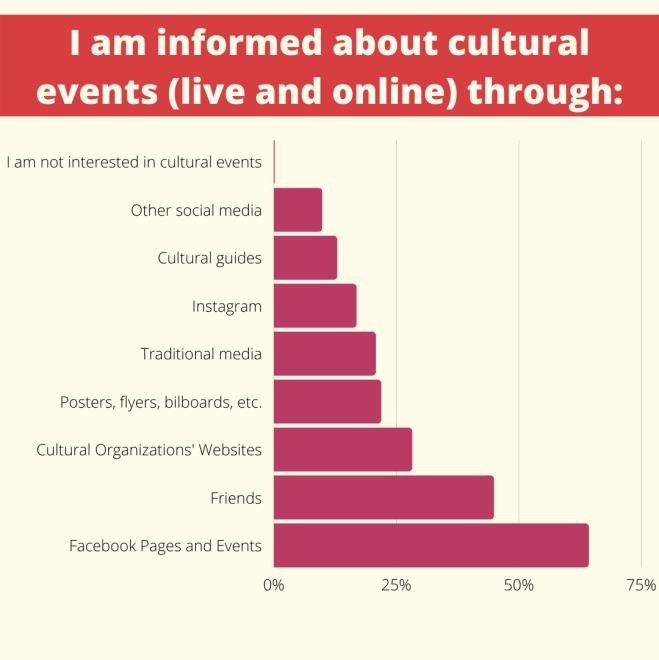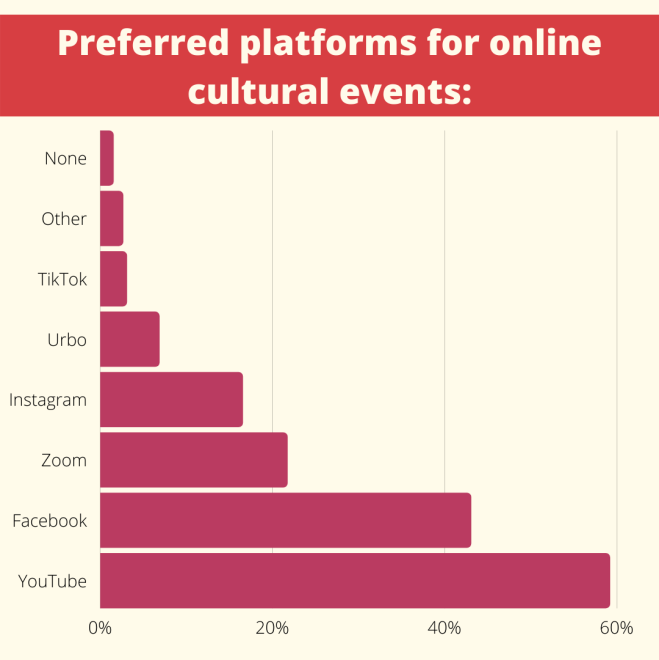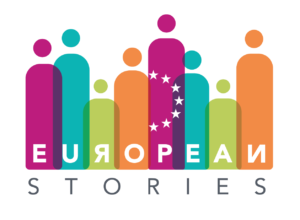Information Channels, Preferred Platforms & Price
The public is mostly ‘passively’ informed about events through channels – little to no effort to learn about the events (Facebook, friends, media, ).
The most preferred platforms allow an asynchronic This liberates the attendee from ‘sticking’ to a specific time, offers are available for longer periods.


The preference towards information channels and platforms depends on the demographic profile of the respondents. Most of the ones involved in this research are in the working age group from 25 to 45, which may explain the small percentages of use of TikTok and the wider use of specific information channels.
Price: While most people share that they have attended events for free, many have paid and say they believe it is important for cultural events online to be paid.
Again, availability is key when considering people’s willingness to pay, as the majority of events (specifically in Bulgaria) were available for free online for the general public. Another consideration is the association between price and quality which many respondents make, believing that having to pay for something makes it more likely to be of higher quality.
Source

This information is part of the research from the project “Reconnect: Audiences and Cultural Content in the Digital Environment” conducted by Intercultura Consult and partners with the financial support of the National “Culture” Fund, Bulgaria. The project aims to investigate audiences’ interests and needs for cultural events in the digital environment and to create guidelines for cultural creators on how to produce products that meet those.
It was collected through an online survey that received more than 500 full responses and 200 partial ones; and through 4 focus groups where around 30 people were interviewed on their specific preferences. The information shared here is highly relevant for Bulgaria, as most respondents are form the country, with some representatives from other European countries. Authors of the research are: Milena Berbenkova, Petya Koleva, Nelly Stoeva, Petya Boyukova, Lidiya Peycheva, Vesi Deyanova and Diana Nedeva.
